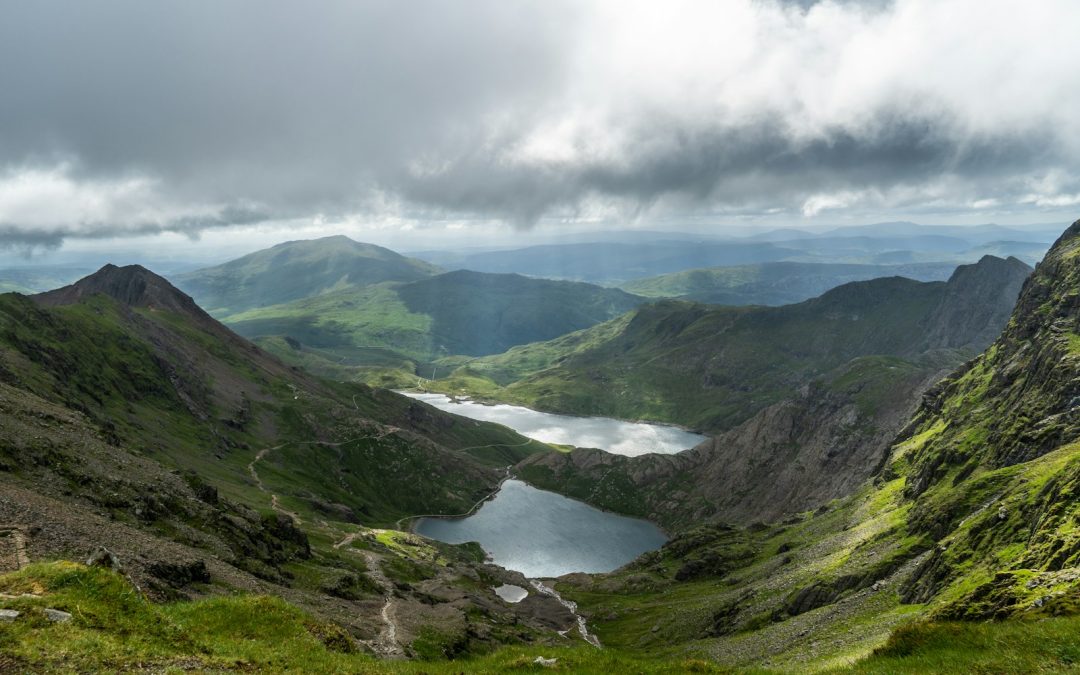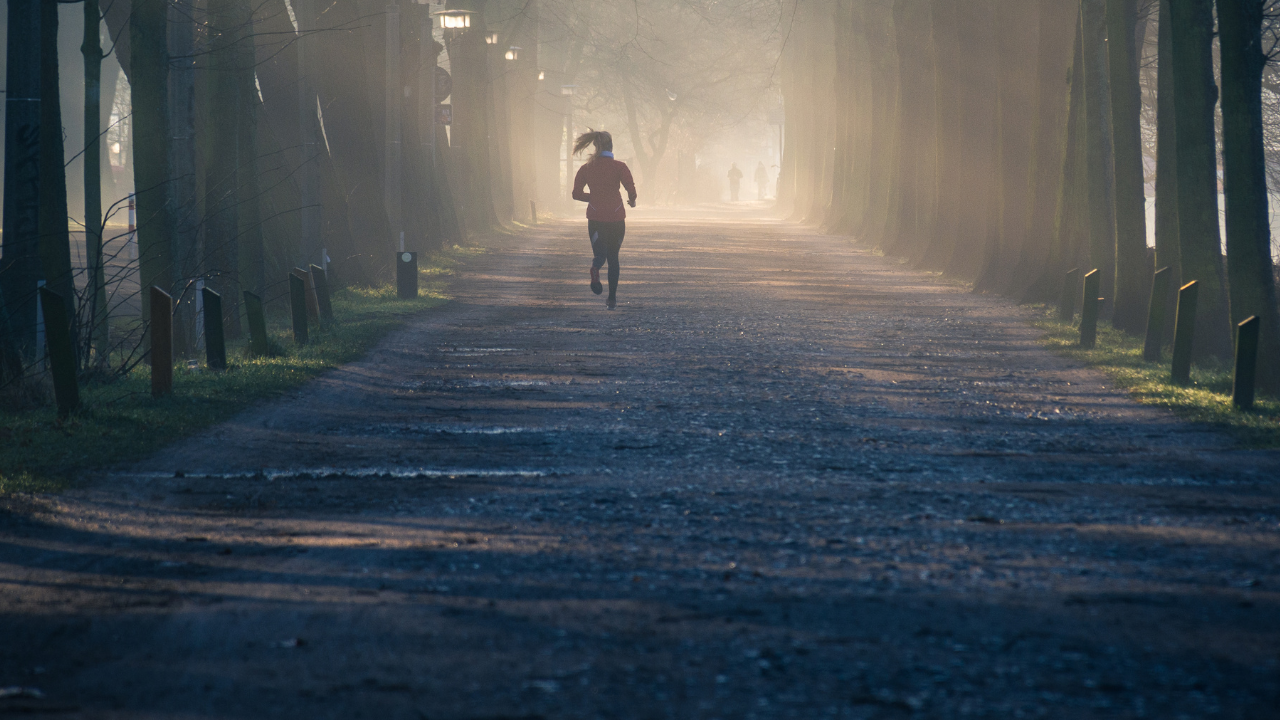How to prepare for the 3 peaks challenge : A comprehensive guide
As one of the most popular and demanding hiking adventures in the UK. In this blog post, we Look at how to prepare for the 3 peaks challenge, what it entails and the steps you can take to ensure you're ready!
The challenge involves climbing the highest peaks of Scotland, England, and Wales: Ben Nevis, Scafell Pike, and Snowdon, respectively. The challenge is typically undertaken within 24 hours, making it a test of both physical endurance and mental fortitude. If you’re planning to take on this exhilarating challenge, proper preparation is crucial.
Understanding the Challenge
Before diving into the preparation, it’s important to understand what the National 3 Peaks Challenge entails:
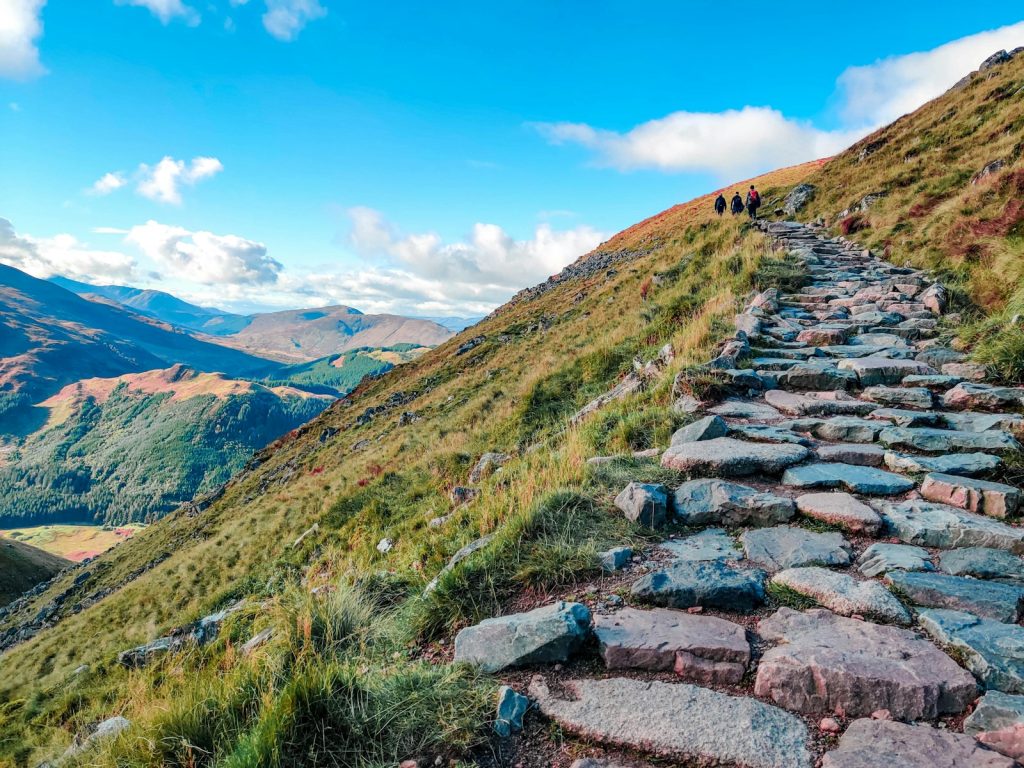
- Ben Nevis: Located in Scotland, it stands at 1,345 meters (4,413 feet) and is the highest peak in the UK.
- Scafell Pike: England’s highest mountain at 978 meters (3,209 feet).
- Snowdon: The tallest mountain in Wales, standing at 1,085 meters (3,560 feet).
The total walking distance is around 23 miles (37 km), with a total ascent of 3,064 meters (10,052 feet), and the total driving distance between the peaks is approximately 462 miles (743 km).
How to Prepare for the 3 peaks challenge: Physically
Cardiovascular Fitness:
Building cardiovascular fitness is essential as you’ll be on your feet for extended periods, ascending and descending steep slopes. Here are some effective ways to improve your cardiovascular endurance:
- Running: Incorporate regular running into your fitness routine. Aim for at least 3-4 times a week, gradually increasing the distance and intensity
- Cycling: A great low-impact exercise that builds endurance.
- Swimming: Excellent for overall fitness and particularly good if you have any joint issues.
- Hiking: There’s no substitute for the real thing. Spend weekends hiking, ideally on hilly terrain, to simulate the conditions you’ll face
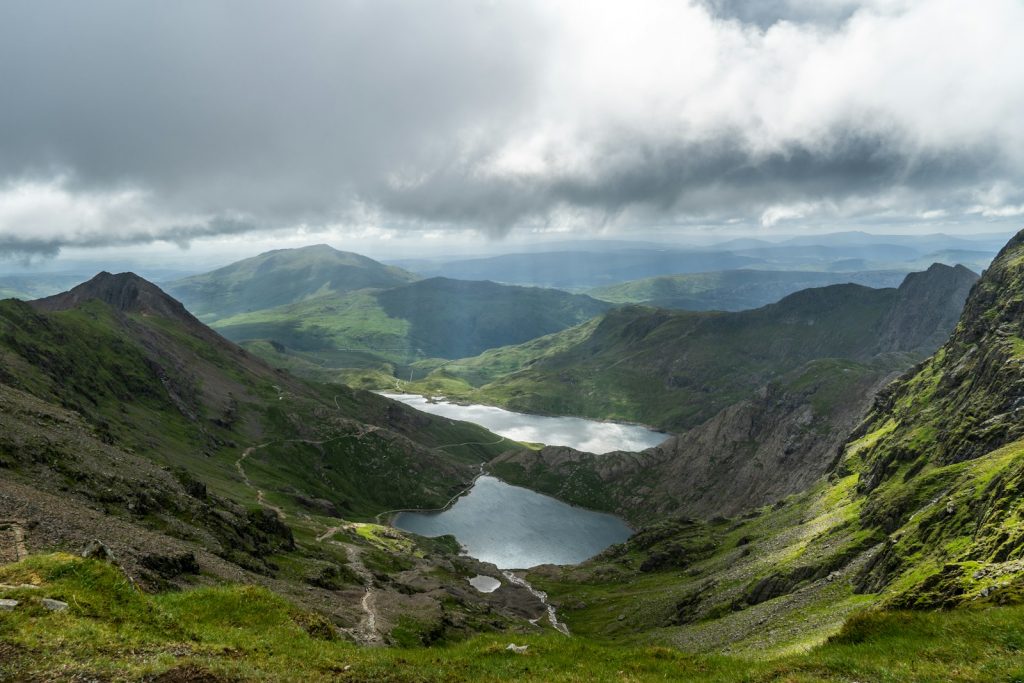
Strength training:
Strengthening your legs, core, and upper body will help you handle the physical demands of the challenge:
- Leg Workouts: Focus on squats, lunges, step-ups, and calf raises. These exercises will build the muscles used during steep ascents and descents.
- Core Workouts: A strong core will help with balance and stability. Incorporate planks, Russian twists, and leg raises into your routine.
- Upper Body Workouts: While not as critical as leg strength, a strong upper body can help with balance and carrying your pack. Push-ups, pull-ups, and shoulder presses are beneficial.

flexibility & balance:
Flexibility and balance are often overlooked but are important for navigating uneven terrain:
- Stretching: Incorporate a stretching routine to maintain flexibility, focusing on your legs and lower back.
- Yoga: Yoga can improve both flexibility and balance, and it’s a great way to relax and unwind.
Stamina & endurance:
Build your stamina by gradually increasing the duration and intensity of your training sessions. Consider including interval training and long-distance hikes to simulate the physical demands of the challenge.
How to Prepare for the 3 peaks challenge: Mentally
The National 3 Peaks Challenge is as much a mental challenge as a physical one. Here’s how to prepare mentally:
- Set Realistic Goals: Understand your limits and set achievable goals. If completing the challenge in 24 hours seems daunting, aim for a slightly longer timeframe.
- Visualisation: Visualise yourself completing each peak and the entire challenge. This mental rehearsal can boost your confidence and motivation.
- Mindfulness and Relaxation: Practice mindfulness or meditation to improve your focus and reduce stress.
Logistics and Planning
When thinking about how to prepare for the 3 peaks challenge, research and planning is vital.
route planning:
Plan your route meticulously. Familiarise yourself with the trails, landmarks, and potential hazards. The traditional order of ascent is Ben Nevis, Scafell Pike, and Snowdon, but this can vary depending on your location and preferences.
transportation:
Decide how you’ll travel between the peaks. Hiring a dedicated driver is a popular option, allowing participants to rest between climbs. Alternatively, you can share driving duties with teammates.
Accommodation:
If you’re not attempting the 24-hour challenge, plan your accommodation. There are numerous hostels, B&Bs, and campsites near each peak. Booking in advance is advisable, especially during peak seasons.

equipment:
Having the right gear is crucial for your safety and comfort:
- Footwear: Invest in high-quality hiking boots that are waterproof and provide good ankle support. Break them in well before the challenge.
- Clothing: Dress in layers to adapt to changing weather conditions. Moisture-wicking base layers, insulating mid-layers, and waterproof outer layers are essential.
- Backpack: A sturdy, comfortable backpack with a capacity of 20-30 liters should suffice. Ensure it has a hydration system or space for water bottles.
- Navigation Tools: Carry a map, compass, and GPS device or smartphone with offline maps. Know how to use them.
- First Aid Kit: Include bandages, blister plasters, pain relief medication, and any personal medication.
- Other Essentials: Headlamp with spare batteries, trekking poles, sunscreen, sunglasses, hat, gloves, and a multi-tool.

nutrition & hydration:
Fuelling your body properly is vital:
- Pre-Challenge Nutrition: Eat a balanced diet rich in carbohydrates, proteins, and healthy fats in the weeks leading up to the challenge.
- During the Challenge: Carry energy bars, nuts, dried fruit, and sandwiches. Aim to eat small, frequent snacks to maintain energy levels.
- Hydration: Drink water regularly. An electrolyte solution can help prevent dehydration and cramping.
Safety Considerations
Safety should always be a priority when looking at how to prepare for the 3 peaks challenge:
- Weather: Check the weather forecast for each peak and be prepared for sudden changes. Know when to turn back if conditions become dangerous.
- Pace Yourself: Don’t push too hard, especially at the beginning. Conserve your energy for the entire challenge.
- Stay Together: If you’re part of a team, stick together. Look out for each other and communicate regularly.
- Emergency Plan: Have a plan in case of emergencies, including knowing the nearest emergency services and having a charged phone with emergency contacts.
How to Prepare for the 3 peaks challenge: training plan
Here’s an example of a suggested 12-week training plan to help you prepare for the challenge ahead:
Weeks 1-4: Building Base Fitness
- Cardio: 3 sessions per week (running, cycling, or swimming)
- Strength Training: 2 sessions per week (focus on legs and core)
- Hiking: 1 hike per week, 2-3 hours on hilly terrain
Weeks 5-8: Increasing Intensity
- Cardio: 4 sessions per week (include interval training)
- Strength Training: 2 sessions per week
- Hiking: 1 hike per week, 4-5 hours on hilly terrain
Weeks 9-12: Peak Training
- Cardio: 4 sessions per week (longer duration)
- Strength Training: 2 sessions per week
- Hiking: 1 hike per week, 6-8 hours on mountainous terrain
Final Week: Tapering
- Reduce the intensity and duration of your workouts to allow your body to recover before the challenge.
Final Preparations
Check Your Gear: Ensure all your gear is in good condition and packed. Double-check your essentials list.
Plan Your Schedule: Have a detailed schedule, including estimated times for each climb and travel times between peaks. Share your plan with someone not participating in the challenge.
Rest and Hydrate: In the days leading up to the challenge, focus on getting plenty of rest and staying well-hydrated.
Mental Readiness: Revisit your mental strategies. Stay positive and focused on your goal.
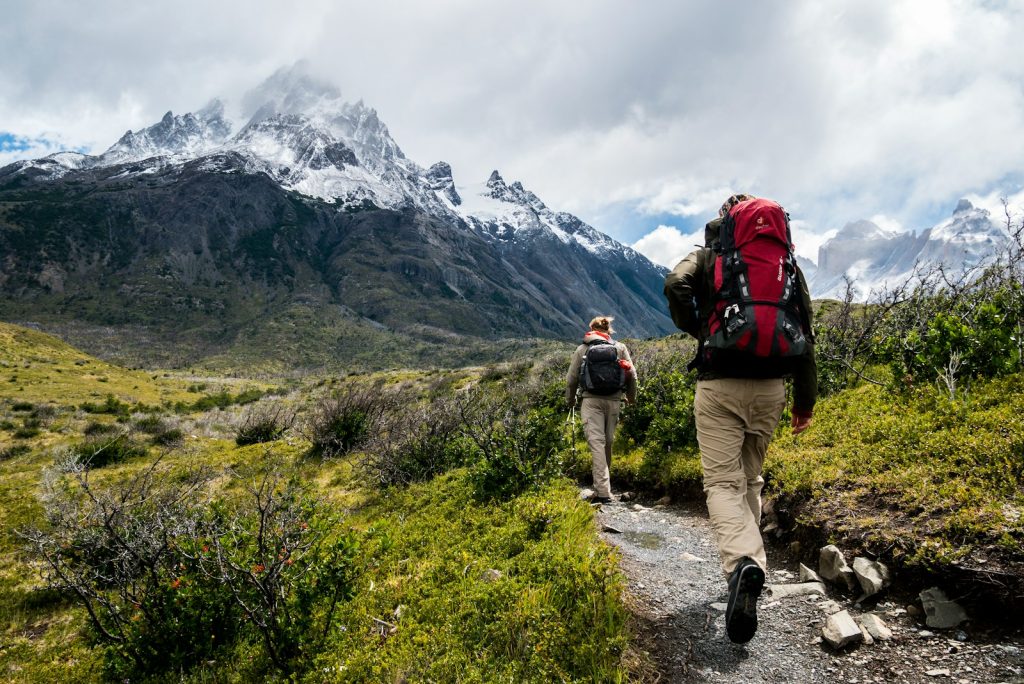
On the Day of the Challenge
- Start Early: Begin your ascent of Ben Nevis early in the morning to maximize daylight hours.
- Monitor Your Pace: Keep a steady pace. It’s better to be consistent than to start too fast and burn out.
- Stay Hydrated and Fueled: Regularly eat and drink, even if you don’t feel hungry or thirsty.
- Take Breaks: Short, regular breaks can help you maintain energy levels.
to 'Summit' up...
The National 3 Peaks Challenge is a formidable but achievable goal with the right preparation. By focusing on physical training, mental readiness, and thorough logistical planning, you can set yourself up for success. Remember to prioritize safety and enjoy the incredible landscapes and sense of accomplishment that come with conquering the three highest peaks in the UK. Good luck!
If you wish to seek further help or speak to a practitioner about any of the above, call us on 0800 731 2738 or book online here.
You can also view all the services we provide within our clinics on our website, as well as checking out our other blogs and content.
For more free tips and information, make sure to follow our Facebook and Instagram pages. We also post client stories, so you can see how we’ve helped people get back to doing the things they enjoy!
